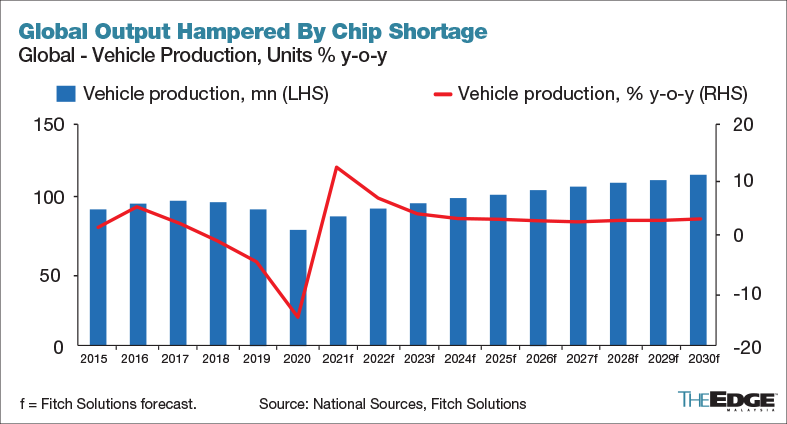Mullen Automotive Stock Performance: Understanding Market Volatility and Investment Factors
Understand Mullen automotive’s stock performance
Mullen automotive has experience significant stock price fluctuations that reflect both company specific developments and broader market conditions affect electric vehicle manufacturers. The stock’s performance demonstrate the volatile nature of emerge EV companies and the various factors that influence investor confidence in this quickly evolve sector.
Several interconnected factors contribute to stock price movements for companies like Mullen automotive. Market sentiment toward electric vehicle stocks, regulatory changes, production milestones, financial performance, and competitive positioning all play crucial roles in determine investor interest and stock valuation.
Electric vehicle market dynamics
The electric vehicle industry face unique challenges that impact stock performance across the sector. Supply chain disruptions, battery technology costs, charge infrastructure development, and regulatory uncertainty create an environment where stock prices can experience dramatic swings base on industry news and developments.
Mullen automotive operate within this challenging landscape, where investor expectations much exceed current production capabilities and revenue generation. The company’s stock performance reflect the broader market’s assessment of its ability to compete with establish automakers and other EV startups.
Market volatility in the EV sector stem from several key factors. Production scaling challenges affect nearly emerge electric vehicle manufacturers, as transition from prototype development to mass production require significant capital investment and operational expertise. Companies must demonstrate their ability to meet production targets while maintain quality standards and cost efficiency.
Company specific performance factors
Mullen automotive’s stock movements correlate with specific company announcements and developments. Production updates, partnership agreements, regulatory approvals, and financial report all influence investor perception and stock price direction.
The company’s progress toward commercial vehicle production represent a critical factor in stock performance. Investors intimately monitor manufacturing milestones, delivery schedules, and order book developments as indicators of business viability and growth potential.
Financial performance metrics importantly impact stock valuation. Revenue generation, cash burn rates, funding requirements, and profitability timelines all contribute to investor assessment of the company’s long term prospects. Companies in the early stages of production oftentimes experience stock volatility as they navigate the transition from development to revenue generate operations.
Market sentiment and investor behavior
Investor sentiment toward electric vehicle stocks fluctuates base on various external factors. Interest rates, economic conditions, energy prices, and government policy changes all influence how investors view the EV sector’s growth prospects.

Source: YouTube.com
Retail investor participation in EV stocks can contribute to increase volatility. Social media discussions, analyst recommendations, and market speculation can drive short term price movements that may not reflect fundamental business performance.
Institutional investor behavior to affect stock performance. Fund managers’ allocation decisions, risk assessment changes, and portfolio rebalancing activities can create significant buying or sell pressure on individual stocks within the sector.
Regulatory and policy influences
Government policies regard electric vehicles importantly impact stock performance across the industry. Tax incentives, emissions regulations, infrastructure investments, and trade policies all influence investor confidence in EV companies’ growth prospects.
Federal and state level initiatives support electric vehicle adoption create both opportunities and uncertainties for companies like Mullen automotive. Policy changes can affect demand projections, competitive positioning, and financial incentives available to both manufacturers and consumers.

Source: investorplace.com
Regulatory approval processes for new vehicle models and manufacture facilities too influence stock performance. Delays or approvals in certification processes can importantly impact investor expectations and stock price movements.
Competitive landscape pressures
The electric vehicle market’s competitive intensity affect individual company stock performance. Establish automakers’ EV initiatives, new startup announcements, and technological developments across the industry influence investor assessment of each company’s competitive position.
Mullen automotive compete not but with other EV startups but besides with traditional automakers transition to electric powertrains. This competition affect market share projections, pricing strategies, and investor confidence in the company’s ability to establish a sustainable market position.
Technology developments across the industry can impact stock performance. Battery technology improvements, autonomous driving capabilities, and manufacturing innovations by competitors can influence investor perception of each company’s technological competitiveness.
Financial market conditions
Broader financial market conditions importantly influence EV stock performance. Interest rate changes affect the cost of capital for growth companies, while economic uncertainty can reduce investor appetite for speculative investments.
Growth stock valuations, include those in the EV sector, oftentimes experience heighten sensitivity to market conditions. During periods of market uncertainty, investors may reduce exposure to companies with limited current revenue in favor of more establish businesses.
Liquidity conditions in financial markets besides affect stock performance. During periods of reduced market liquidity, smaller companies may experience more pronounce price movements as trading volumes fluctuate.
Production and operational challenges
Manufacturing challenge common to emerge automakers influence stock performance. Supply chain management, quality control, production scaling, and operational efficiency all represent critical factors that investors monitor intimately.
Mullen automotive’s ability to meet production targets and delivery schedules direct impact investor confidence. Delays or issues in manufacturing operations can lead to stock price declines as investors reassess the company’s execution capabilities.
Operational milestones such as facility construction, equipment installation, and workforce development serve as important indicators of progress toward commercial production. Investor reactions to these developments can importantly influence stock price movements.
Investment risk considerations
Electric vehicle stocks, include Mullen automotive, carry inherent risks that contribute to price volatility. Technology risks, market adoption uncertainties, and execution challenge all factor into investor decision make processes.
Funding requirements for scale production represent ongoing concerns for emerginEVev companies. Investors monitor cash positions, financing activities, and capital requirements as indicators of financial sustainability and potential dilution risks.
Market timing risks besides affect stock performance. The pace of electric vehicle adoption, infrastructure development, and regulatory support can impact the timeline for achieve profitability and sustainable growth.
Future outlook factors
Several factors will probably will continue will influence Mullen automotive’s stock performance. Production milestone achievements, partnership developments, market expansion opportunities, and financial performance improvements all represent potential catalysts for stock price movements.
Industry trends toward electrification, autonomous driving, and sustainable transportation create both opportunities and challenges for companies position themselves in these markets. Investor assessment of Mullen automotive’s strategy and execution in these areas will continue will affect stock performance.
The company’s ability to will differentiate its products, will establish market presence, and will achieve operational efficiency will remain critical factors in will determine long term stock performance and investor confidence.
Understand these various influences on stock performance help investors make more inform decisions about electric vehicle investments and advantageously assess the risks and opportunities associate with companies like Mullen automotive operate in this dynamic and evolve industry.



